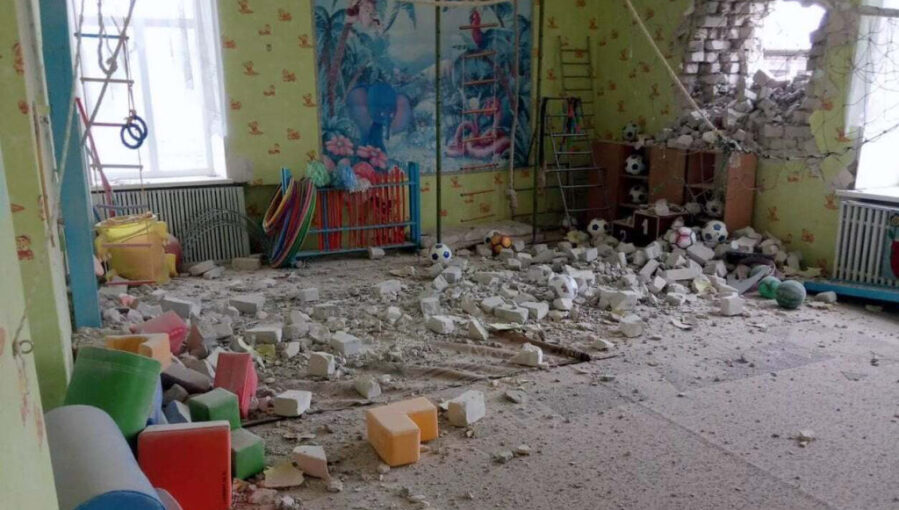
ACURA, 2/23/22
The American Committee for US-Russia Accord believes that diplomacy is key to solving disputes and conflicts, and we have supported and called on all parties to the current crisis in Ukraine to seek a resolution of differences through diplomatic means, respecting international law and international borders.
As advocates of a diplomatic resolution we are gravely concerned that Russia has chosen to abandon the path of dialogue, diplomacy and negotiation by deciding, on February 21st, to unilaterally recognize Donetsk and Luhansk as independent Republics and order peacekeeping troops to these areas of Ukraine. We are also dismayed by US secretary of state Antony Blinken’s decision to cancel a planned meeting with Russian foreign minister Sergei Lavrov this week.
It is not lost on us that the precedent for President Putin’s decision to recognize the breakaway republics was set by the United States. Almost exactly fourteen years ago, on February 18, 2008 the US unilaterally recognized Kosovo’s independence in the face of Russian objections. Nevertheless, Mr. Putin’s actions are a violation of the territorial integrity and sovereignty of Ukraine, which we do not condone. This action by Russia, coming on the heels of the US and NATO’s rejection of Russia’s security proposals, opens a dangerous new juncture bringing with it an escalation of tensions that will benefit no one.
We appeal to Russia to confine its military presence to the Donetsk and Luhansk People’s Republics and to Ukraine to avoid military action against the breakaway enclaves. A cease-fire in the area is essential if there is any chance of finding a peaceful solution.
Yet, if Moscow’s actions in recent days and weeks, are, as we believe, deeply concerning, so too is the increasingly hardline being taken by Ukrainian president Volodymyr Zelensky who promised voters, when he ran for and won the presidency in 2019, that he would pursue a path to peace and end the war in the Donbas. Unfortunately, his speech to the Munich Security Conference last week amounted, in our view, to something close to a declaration of war.
The Ukrainian government then has to shoulder its share of the blame for the current crisis, particularly for its refusal to implement the essential provisions of the Minsk Protocols (2015), including respect for Russian language rights in Ukraine.
Sadly, we must also recognize that Mr. Zelensky’s profoundly unwise address was no doubt influenced by the same liberal and neoconservative war hawks in America’s political class and media who so loudly applauded it. The resemblance between today and February 2014, when the US aided and abetted Ukraine in its most self-destructive impulses, is hard to miss.
Also shameful is the complicity of our own national security establishment, including the veritable parade of former generals and intelligence officials who now seemingly shape the amnesiac and militaristic coverage of our most influential media outlets.
And so, as Russia and Ukraine inch closer and closer to the abyss of war, what is needed is not a rush to cede to the hawks in both parties who are braying for conflict, but for intense negotiations —at the UN, at the OSCE, and among the signatories to the Minsk Protocols. It is time to recognize that there remain options that, if pursued in good faith, could bring the current crisis to a peaceful conclusion.
To that end, we recommend a moratorium on NATO membership and a return to the Conventional Forces in Europe and Intercontinental Ballistic Missile treaties. We believe the crisis can and should ultimately be resolved by a declaration of Ukrainian neutrality and the withdrawal of Russian forces from the Donbas. To that end, we applaud the restraint shown by both France and Germany, and are particularly supportive of President Emmanuel Macron’s efforts towards ending the crisis.
To our own President, Mr. Biden, we say: American interests in Ukraine will never outweigh those of Russia’s; the US and NATO cannot and will not win a war on the ground against Russia in its own backyard; sanctions will not somehow, some way prevail this time and may indeed damage the American economy. This crisis is fundamentally, at its core, about the grave mistake of NATO expansion.
In the end, we must recognize that diplomacy is the only answer to the crisis. We urge President Biden and his administration to encourage and, if need be, help facilitate, the hard but necessary work of diplomacy that is being undertaken by our allies in Paris and Berlin.
For the American Committee for US-Russia Accord,
Signed,
Katrina vanden Heuvel, President of ACURA; Editorial Director and Publisher of The Nation magazine
James W. Carden, Senior Consultant to ACURA; former Advisor to the Special Representative for Intergovernmental Affairs, U.S. State Department
Christopher C. Dyson, Executive Vice President, The Dyson-Kissner-Moran Corporation
Bernadine Joselyn, founding Director of Public Policy and Engagement, Blandin Foundation; former Foreign Service Officer, U.S. State Department
Cynthia Lazaroff, award-winning documentary filmmaker and founder of NuclearWakeUpCall.Earth
Anatol Lieven, PhD, Senior Research Fellow on Russia and Europe, The Quincy Institute
Jack F. Matlock, PhD, U.S. Ambassador to the Soviet Union 1987-1991; U.S. Ambassador to Czechoslovakia from 1981-1983
Krishen Mehta, former Partner, PricewaterhouseCoopers; Senior Global Justice Fellow, Yale University
Nicolai Petro, PhD, professor of political science, University of Rhode Island; former special assistant for policy in the Office of Soviet Union Affairs, U.S. State Department
David C. Speedie, former Senior Fellow and Director of the Program on U.S. Global Engagement at the Carnegie Council for Ethics in International Affairs in New York


